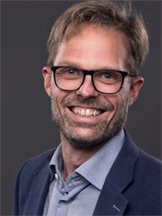
Bo Kristian Holm is professor (with special responsibilities) in systematic theology at Aarhus University. His main research include the theologies of Luther and Melanchthon, the relation between theology and social anthropology with a special focus on the economy of the gift, the 20th century Germen Lutherrenaissance and the influence of Lutheranism on notions of authority in Scandinavia.
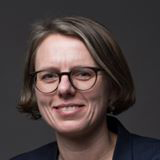
Nina Javette Koefoed is associate professor in history with a special obligation on the 18th and 19th century at Aarhus University and PI for the research project: Lutheranism and societal development in Denmark. Her research focuses on the influence from the reformation on the understanding of social identity and socio-emotional obligations within the household especially in early modern Denmark. She has previously worked on the regulation of sexuality and marriage after the reformation, but also with questions concerning poor relief, social responsibility and citizenship from the reformation until the early 20. Century.
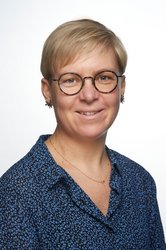
Jette Bendixen Rønkilde is an associate professor of liturgy at Folkekirkens Uddannelses- og Videnscenter and researches religious and liturgical practice inside and outside the church in both historical and contemporary perspectives. She has worked with Grundtvig’s view on worship, the liturgical agendas of the Evangelical Lutheran Church in Denmark, church rituals and recent developments in the liturgical life of the Nordic churches. In recent years, a substantial area of research has been Luther’s liturgical writings and his proposed agendas for both worship and specifically the Eucharist. She has examined the relation between liturgy and sociality to illuminate if and how Lutheran Eucharistic liturgies from the reformation onwards can be seen to incorporate, enact and encourage a specific sociality.

Mattias Sommer Bostrup is an assistant professor in church history at the Department of Theology at Aarhus University. His research interests are the history and the historiography of the Danish Reformation, the history of Pietism, and the history of interreligious encounters in early modern Europe. Currently, Sommer Bostrup’s work focuses on the experiences of the religious other on the Schleswig-Holstein island Nordstrand, and on toleration as a flexible concept between political ambitions, missionary activities, and theological thought.
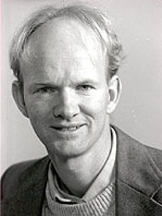
Gorm Harste, dr.scient. pol. and associate professor at Department of Political Science and Government, Aarhus University. Harste examines those conflicts that emerges about formation of states and power after the Reformation. Confessional cultures emerged in opposition to each other and clashed throughout the establishment of the Westphalian system in the long transitional era from 1555 to 1748. In his research project Harste examines if the Danish perspective on state power is an extreme consequence of European power development.
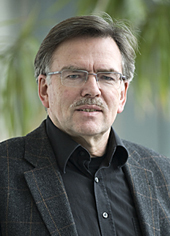
Svend Andersen is a professor emeritus at the Department of Systematic Theology, Institute for Culture and Society, Aarhus University. He has worked broadly with the Reformation and especially with Lutheran ethics, as well as the political and legal relations, that relates to the Lutheran teaching.
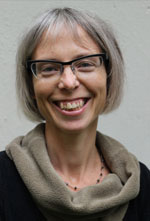
Charlotte Appel, D.Phil. and associate professor in Danish/Scandinavian cultural history 1500-1800, Department of History and Classical Studies, School of Culture and Society, Aarhus University. CA has written extensively on book markets and book culture as well as schools and education in 16th, 17th, and 18th century Denmark. She investigates the manifold effects of the reformation on these areas, including the key role played by Martin Luther’s Small Catechism. This gave rise to a particular Lutheran reading culture, which profoundly shaped the development of a Lutheran confessional culture.
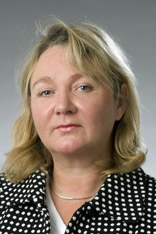
Agnes S. Arnórsdóttir is Associate professor in European and Danish medieval history at the Department of History, Aarhus University. She has written the dissertation "Property and Virginity. The Christianization of Marriage in Medieval Island 1200-1600", published by Aarhus University Press in 2010, and has previously worked on the religious culture of the Late Middle Ages and medieval memory and donation culture. She has published books on women and gender history and her current research relating to the reformation focuses on wills and donation culture in the 15th and 16th century as well as on marriage and motherhood.
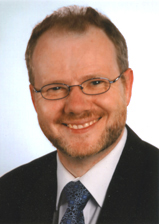
Dr. Rainer Atzbach, is associate Professor of Medieval and Renaissance Archaeology at Aarhus University. Atzbach was curator of the exhibition "Elisabeth in Marburg. Service for the Poor" and "Castles and Power" in Berlin before coming to Denmark. He scrutinizes stove tiles and other furnishing as a source for identity and belief during Renaissance. Moreover, he is interested in the internation network of nobility and its buildings, which are in the focus of his research project "Topography of Power".
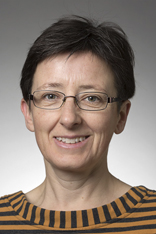
Mary Hilson is a Professor in History at Aarhus University. Her research includes modern Nordic history and she is also interested in the North as a region and the Nordic model in the 20th century.
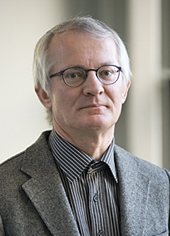
Per Ingesman, dr.phil. and Professor emeritus of Church History at Aarhus University, Denmark. His main area of research is Danish and European ecclesiastical history in the late medieval and early modern period. At present he is doing research on changes in ecclesiastical discipline at the Reformation, on the evolution of Danish marital law after the Reformation, and on the confessionalisation of Danish society in the wake of the Reformation.
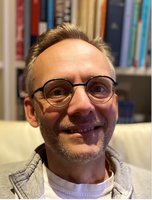
Ulrik Nissen is Associate Professor in ethics and philosophy of religion at Department of Theology, Aarhus University and Professor II at MF Norwegian School of Theology, Religion and Society. His research is focused on Lutheran ethics with emphasis on both fundamental issues and areas with contemporary challenges in political thought, medical ethics and ethics of nature.
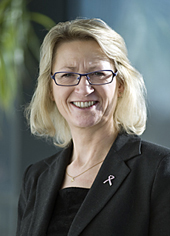
Else Marie Wiberg Pedersen is associate professor emerita in Systematic Theology at Aarhus University. Her research includes spirituality and mystic in the middle ages, with special view to its expression in everyday theology, as well as, the continuity and dis-continuity between the theology of Bernhard of Clairvaux and Luther. Her special research interest is the Reformation and gender, where she has studied the impact of Luther's theological breakthroughs on women's role in theology, church and society.
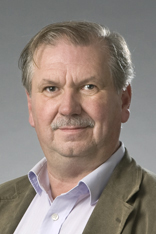
Anders Moe Rasmussen is associate professor in Philosophy at Aarhus University and his research area involves German idealism with a special view towards Fichte, Schelling and Kierkegaard. He has during recent years directed the FKK funded research network Protestantismenetværket.
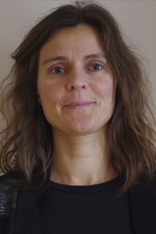
Laura Katrine Skinnebach is postdoc at Department of Art History, Aesthetics & Culture and Museology at Aarhus University. My main research areas are devotional practice and perception in the Reformation period in Denmark. I focus in particular on the gradual integration and appropriation of lutheran thought into devotional life and material culture, as expressed and illuminated in Prayer Books, images and a variety of religious objects.
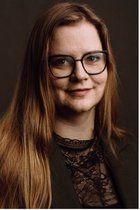
Sasja Emilie Mathiasen Stopa holds a PhD in systematic theology and works as a postdoctoral researcher on the project “FIDUCIA: The theological roots of Danish trust culture undergirding the welfare state.” The project is funded by the Carlsberg Foundation and explores the potential influence of Lutheran theology on the development of Danish trust culture and welfare state formation from the late 19th century onwards.
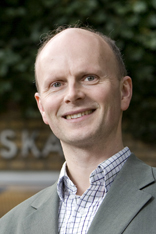
Gert Tinggaard Svendsen is professor, PhD., Department of Political Science, Aarhus University. Relevant main research areas are trust and absence of corruption. Denmark, followed by the other Nordic countries, holds most trust and least corruption in the world today. One possible explanation on this special nordic feature could be the lutheran reformation and here the interdisciplinary LUMEN network is crucial. Furthermore, a comprehensive research network concerning trust and corruption is reflected in the Handbook of Social Capital (2009) as edited by Svendsen. One relevant example of interdisciplinary research is the book ”Trust” (2014) in the Reflections series from Aarhus University Press (e.g. positively reviewed by Forbes Magazine) and translated to Chinese (信任) in 2016.
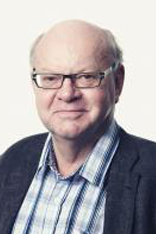
Uffe Østergård Professor emeritus in European and Danish History, Department of Business and Politics, Copenhagen Business School, honorary professor in modern history, University of Aarhus. Formerly director of the Danish Center for Holocaust and Genocide Studies and Jean Monnet professor in European Civilization and Integration, University of Aarhus.
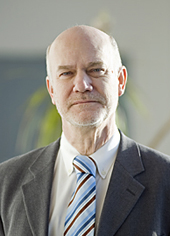
Carsten Bach-Nielsen is a former assistant professor in church history at the Department of Theology at the AU. His research comprises the legacy of the reformation in European culture, art, and literature. His particular interest is cultural memory and politics of memory with reference to the Reformation centenaries in Denmark since 1617. He is writing a book about church history as curriculum in the Danish school until around 1965. It will focus on Grundtvig’s concept of history and its mediation in the school and in the public space. During the last years, he has taken up his interest in Thomas Kingo, the most influential Danish Christian poet of the 17th century.
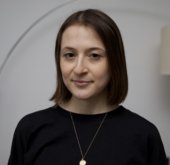
Odile Liliana Panetta's research focuses on early modern political and religious thought, with a particular interest in Protestant Europe. She is currently a postdoctoral researcher on the AUFF-funded project "Body politic(s) - The body in early modern political thought"; her contribution to the project examines the development of justifications for punishment and social discipline in sixteenth- and early seventeenth-century Reformed Protestantism. Her earlier research explored discussions about the legitimacy of coercing heretics in mid-sixteenth-century Switzerland; this work resulted in her first article, ‘Heresy and Authority in the Thought of Théodore de Bèze’, Renaissance and Reformation / Renaissance et Réforme 45.1 (2022), pp. 33-72.
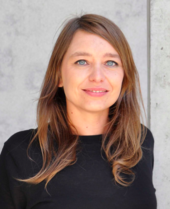
Anna Becker is professor with special responsibilities at the Department of Philosophy and History of Ideas. She works at the intersection of intellectual history, gender history and cultural history. Her work has concentrated on the role of gender and marriage in early modern political and legal thought in Europe, and she has a particular interest in political Aristotelianism. She is the PI of an AUFF project Body Politic(s)- The body in early modern political thought and has published widely on the body and material concerns also in a global context. She is currently working on the role of mothers and motherhood in early modern culture and politics.
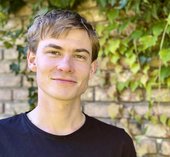
Bjarke Hellemann Weiss is a PhD fellow at the Department of History and Classical Studies at Aarhus University. In his PhD project, he examines the relationship between religious and patriotic ideas in the debates during full press freedom in Denmark, c. 1770-1773. Furthermore, the relationship between religion and patriotism serves as an entry point for discussing general phenomena such as enlightenment and secularisation in a Danish context.
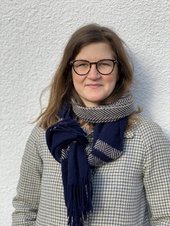
Trine Arlund Hass, PhD, Senior Editor at The Society for Danish Language and Literature. Her research centres on the Latinate literature that flourished following the Lutheran reformation in Denmark. An expression of Philipp Melanchthon’s humanism, this literature imitated ancient Latin models in regard to language, form, and content while also adapting to the Danish context. In the project Danish identity and identities in Denmark 1500-1700: the Latin cultural heritage: a study of the Latin cultural heritage of Denmark (Augustinus Fonden) she examines literary constructions of learned male and female identities.
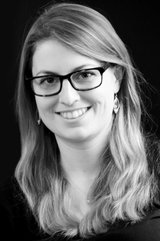
Maria Nørby Pedersen has as a PhD fellow at the Department of History at Aarhus University been part of the DFF project Lutheranism and societal development. In 2022, she defended her thesis: Care for the poor: Poverty care in the light of a religious horizon of understanding, Denmark 1522-1739.
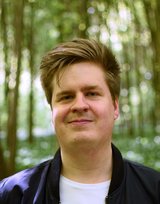
Jonas Thorup Thomsen is a former PhD fellow at the Department of History at Aarhus University. In 2022, he defended his thesis: Danish clergymen and their book collections: A study of clerical libraries, book distribution and knowledge circulation in Denmark, ca. 1685-1810.
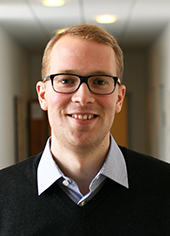
Christian Houth Vrangbæk is a former PhD student at the Department of Systematic Theology, School of Culture and Society, Aarhus University. In 2023, he defended his dissertation: Ad fontes and Accommodatio. Erasmus' Portrayal of Church Fathers in his Patristic Prefaces.
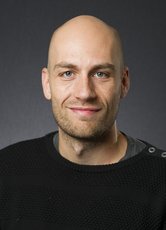
Rasmus Skovgaard Jakobsen is PhD in history and curator at the Museums in Vejle. In 2019 he defended his doctoral thesis Nobility between God and People After the Reformation: The Ideology of the Danish Nobility Under the Reign of the Aristocracy as seen through the Published Noble Death Sermons. The thesis was a research collaboration between LUMEN and the Danish Research Centre for Manorial Studies. His research fields includes the Danish peerage in the 16th and 17th century, especially focusing on how the reformation shaped the noble perception of power, authority and gender in the published noble death sermons from the period. Additionally he also studies the role of the nobility in connection to the church, schools and the poor relief system.
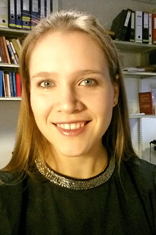
Anette Larner, Phd. Currently employed as a post.doc at Aalborg University on the project Enslaved by the State. As part of that project, she is further developing new understandings from her Phd dissertation, The Good Household Gone Bad, tracing the early modern Good Household through crime and incarceration, about the use, social and religious implementations and political reasons for establishing a Danish prison-workhouse model in light of a renewed focus on the centrality of religious practices in society across all social and political levels. She has been an active member of the LUMEN centre because of the focus on religion as an explanatory model for the development of the Danish workhouse system, and she remains associated with the centre.
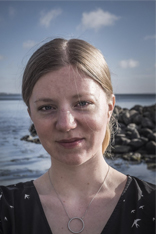
Eva Krause Jørgensen holds a PhD in the History of Ideas from Aarhus University, where she also did a post doc at Theology. Her primary interests are religious, social and political ideas in the Nordics from the 16th to the 18th century. In LUMEN she was part of the project "An economy of reception? The relation between sacrament and sociality in Lutheran Protestant societies" where she worked with Protestant theses and sacramentality.
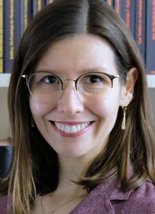
Kinga Zeller is Associate Professor for Lutheran Theology at the PThU in the Netherlands. She has been a PhD fellow in the research group “Reformation theology and Confessional Culture”, the predecessor of the LUMEN Center. In 2018, she defended her thesis: Luthers Schriftverständnis aus rezeptionsästhetischer Perspektive. Eine Untersuchung zu Anknüpfungspunkten, Transformationsmöglichkeiten und bleibenden Differenzen.